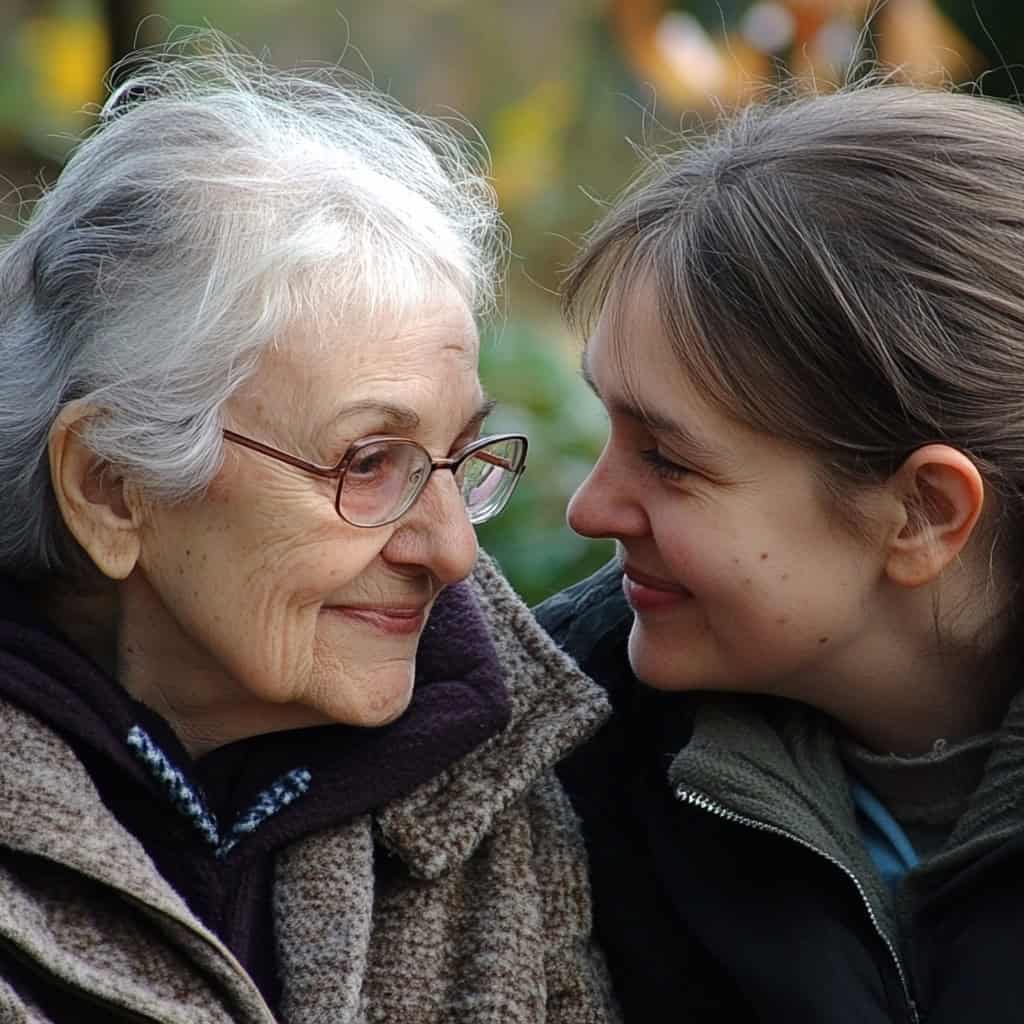Alzheimer’s & Dementia Training for RCFE Caregivers: What You Need to Know
Caring for individuals with dementia or Alzheimer’s disease requires more than basic caregiving skills—it demands specialized knowledge, sensitivity, and the ability to manage unique challenges that arise.
As a caregiver in a Residential Care Facility for the Elderly (RCFE), understanding the differences between dementia and Alzheimer’s – and obtaining relevant training and certifications – is essential for providing the highest standard of care for your assisted living business.
In this article, we will explore dementia and Alzheimer’s training, their importance for caregivers, and how you can pursue certification to improve both your skills and the quality of care you deliver.
Dementia vs. Alzheimer’s: What’s the Difference?
One of the most common misconceptions in elder care is confusing dementia with Alzheimer’s disease. Although they share similar characteristics, they are not the same.
Dementia is an umbrella term used to describe a set of symptoms, including memory loss, difficulty with reasoning, language, and other cognitive abilities. Dementia symptoms can interfere with daily life and are caused by damage to brain cells. Dementia itself is not a specific disease but rather a broad category that includes various conditions, of which Alzheimer’s is the most prevalent.
Alzheimer’s disease, on the other hand, is a specific progressive brain disorder and the most common cause of dementia. Alzheimer’s accounts for 60-80% of dementia cases. It leads to the gradual decline of cognitive function, eventually making it difficult for individuals to complete even the simplest tasks.
For caregivers, understanding the distinction between dementia and Alzheimer’s is crucial. It helps tailor the care approach depending on the individual’s diagnosis, as the progression, symptoms, and behavioral changes can vary between conditions.
Training in both dementia and Alzheimer’s prepares caregivers to provide person-centered care suited to each resident’s unique needs.
What is Alzheimer’s and Dementia Training?
Alzheimer’s and dementia training equips caregivers with the skills and knowledge needed to effectively care for individuals suffering from cognitive decline.
This type of training goes beyond general caregiving and delves into understanding the complexities of brain function, disease progression, and behavioral management.
Alzheimer’s and dementia training focuses on:
- Understanding the types of dementias and the different stages of Alzheimer’s, from early onset to late stages.
- Communication techniques for interacting with individuals experiencing memory loss or confusion.
- Strategies for managing behavioral symptoms such as aggression, wandering, or anxiety.
- Creating a safe and supportive environment for residents with memory impairments.
- Learning the importance of maintaining emotional well-being for both caregivers and patients.
By undergoing dementia training, caregivers can earn a dementia training certificate through specialized programs like the one offered by Assisted Living Education. This certificate ensures that caregivers are well-versed in dementia care protocols, increasing their ability to provide compassionate and effective care.
Why is Alzheimer’s and Dementia Training Important?
Training specifically focused on dementia and Alzheimer’s care is crucial for a number of reasons:
1. Improving Quality of Care
The progression of dementia and Alzheimer’s affects each individual differently. Therefore, a one-size-fits-all approach to care is insufficient. Through Alzheimer’s and dementia training, caregivers can learn how to customize care plans based on the needs of the individual at each stage of the disease. This includes adjusting communication styles, understanding triggers for certain behaviors, and creating a sense of safety and routine for residents.
2. Effective Communication with Residents
One of the key challenges in caring for individuals with dementia or Alzheimer’s is maintaining effective communication. As the disease progresses, verbal communication becomes increasingly difficult for the affected person.
Caregivers trained in Alzheimer’s and dementia care learn strategies for bridging these communication gaps, using techniques such as nonverbal communication, sensory stimulation, and positive reinforcement.
3. Managing Challenging Behaviors
Residents with dementia or Alzheimer’s may experience frustration, confusion, and fear, which can manifest in difficult behaviors such as agitation, wandering, or even aggression. Training helps caregivers manage these behaviors with patience and skill, focusing on de-escalation techniques and promoting a calm, structured environment.
4. Ensuring Regulatory Compliance
For those working in RCFE California facilities, dementia-specific training is a regulatory requirement. California mandates that all staff complete training on the unique needs of dementia and Alzheimer’s patients. Completing this training helps ensure that facilities remain compliant with state regulations while also improving the quality of care delivered to residents.
5. Building Trust with Families
When families place their loved ones in an RCFE, they trust that the caregivers are not only compassionate but also competent in handling the unique challenges of dementia and Alzheimer’s. Caregivers who are trained in dementia and Alzheimer’s care can provide peace of mind to families, ensuring them that their loved one is receiving the best possible care.
Obtaining Alzheimer’s and Dementia Training
Obtaining Alzheimer’s and Dementia training is an important step for any caregiver looking to specialize in memory care. This education provides caregivers with in-depth knowledge, including how to recognize different stages of the disease, how to communicate with patients effectively, and how to manage difficult behaviors.
Many programs are available online and cover the clinical aspects of memory care. For example, Alzheimer’s training for caregivers provides comprehensive education on the care protocols necessary to support individuals with both Alzheimer’s and Dementia, from early-stage symptoms to advanced care needs.
Certification programs often include both theoretical knowledge and practical applications, ensuring that caregivers are well-prepared to handle the complexities of Alzheimer’s and Dementia care. Once certified, caregivers will not only be able to provide better care but also advance their careers by gaining specialized skills that are increasingly in demand.
Continuing Education for RCFE Caregivers
Dementia and Alzheimer’s care are constantly evolving fields, with ongoing research and advancements in treatment, care strategies, and understanding of the diseases. As such, it is essential for California caregivers to stay up to date with the latest developments.
Dementia training courses offer caregivers the opportunity to expand their knowledge, improve their caregiving techniques, and ensure they are compliant with state regulations. These courses often cover advanced topics such as:
- Innovations in dementia and Alzheimer’s care.
- Techniques for enhancing quality of life in residents with cognitive impairments.
- Ethical considerations in dementia care.
- Addressing the emotional needs of caregivers themselves, as burnout is a significant concern in memory care roles.
By participating in ongoing training and obtaining CEUs, caregivers demonstrate their commitment to providing the best possible care for their residents.
A Commitment to RCFE Caregiver Training & Quality Care
Dementia and Alzheimer’s care present unique challenges that require caregivers to be specially trained in managing the cognitive, emotional, and behavioral aspects of these conditions. By offering dementia training for caregivers, RCFE professionals can ensure they are equipped to handle the complexities of memory care with empathy and skill.
With the increasing prevalence of dementia-related conditions, caregivers who undergo specialized training not only enhance their professional qualifications but also significantly improve the quality of life for their residents.
Training programs offered by institutions like Assisted Living Education provide caregivers with the knowledge they need to deliver compassionate, person-centered care.
_____________________________________________________________
Want more residents? Be prepared to care for individuals with Alzheimer’s and Dementia. These residents represent one of the largest growing populations in assisted living facilities. Are you ready to provide them with the specialized care they need?
Learn how now with these best in class course options:
- Dementia Plan of Operation
- Alzheimer’s Disease & Dementia – Caregiving Part 1
- Alzheimer’s Disease & Dementia – Caregiving Part 2
- Alzheimer’s Disease & Dementia – Clinical Part 1
- Alzheimer’s Disease & Dementia – Clinical Part 2
- Dining, Dementia & Dignity
Take advantage of these courses to equip yourself with the knowledge and skills needed to support residents with memory care needs, ensuring your facility is ready for the future.




